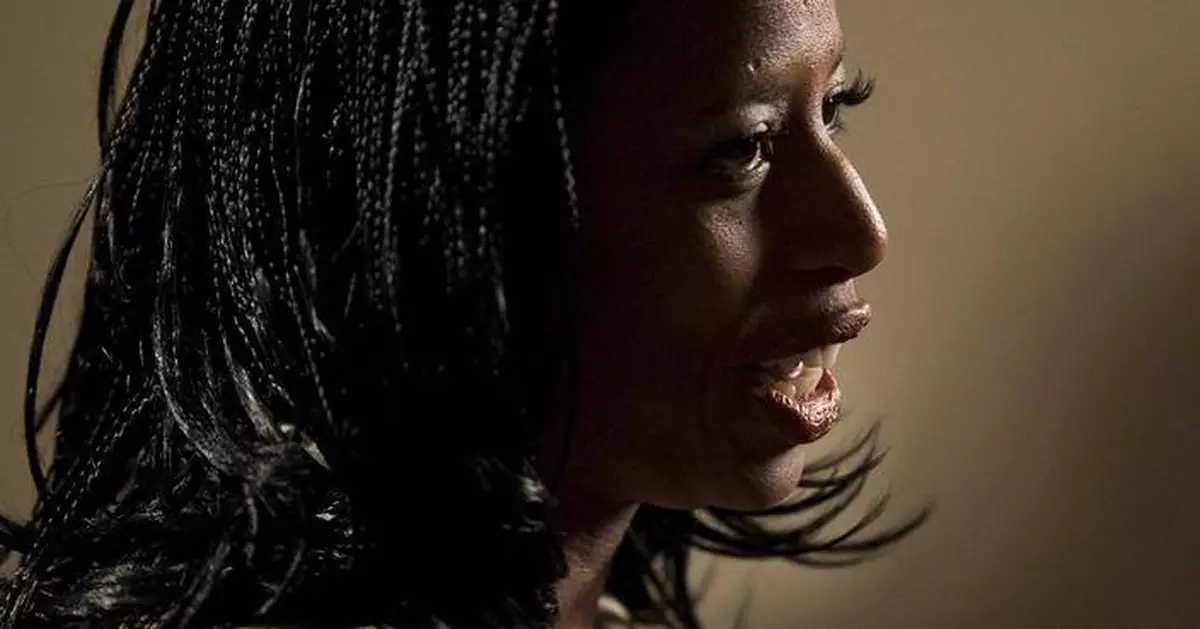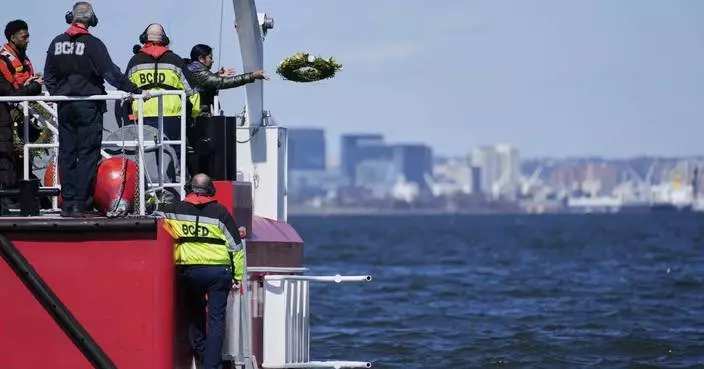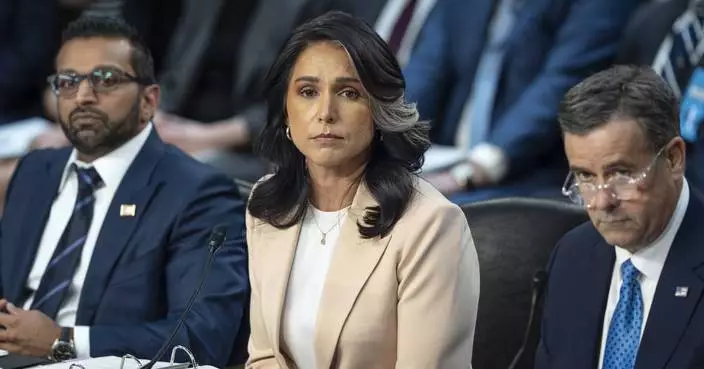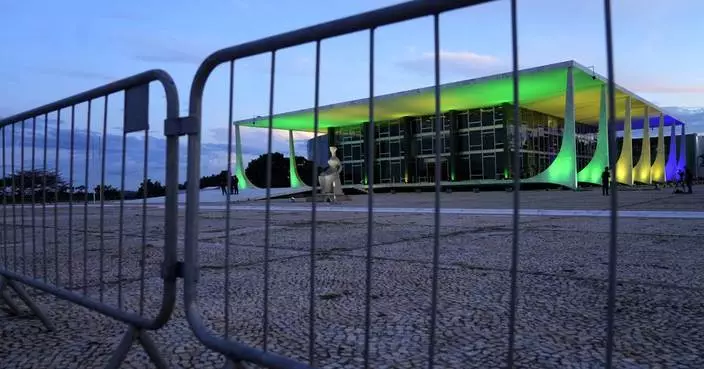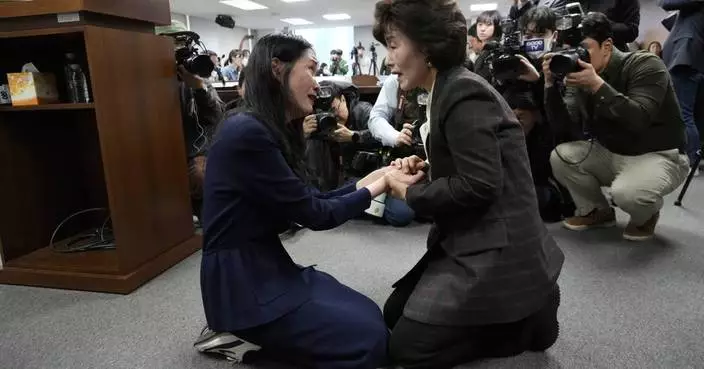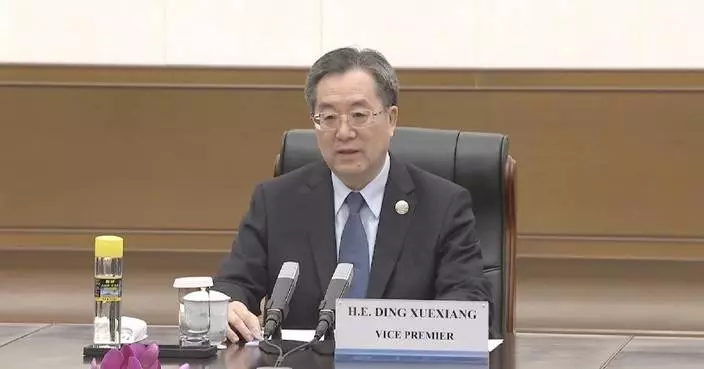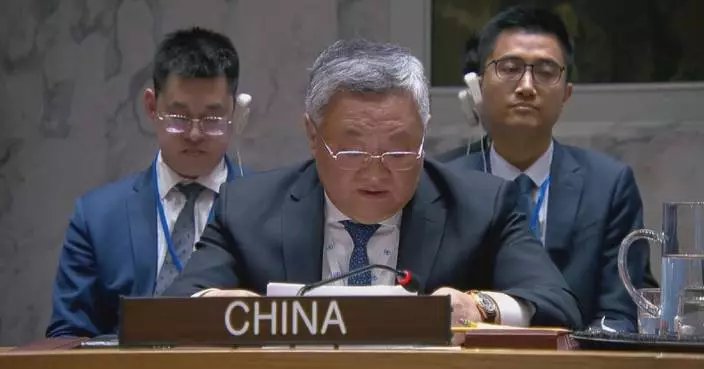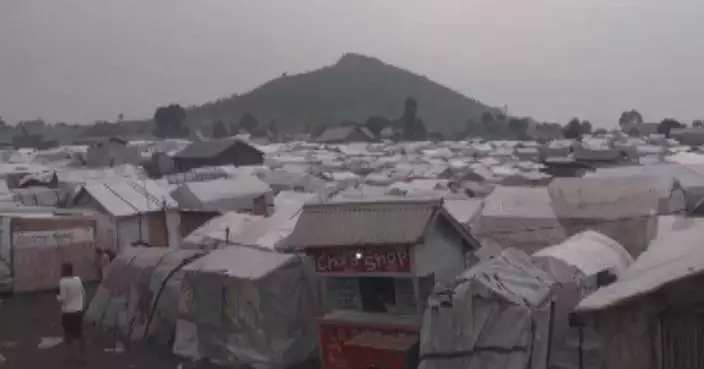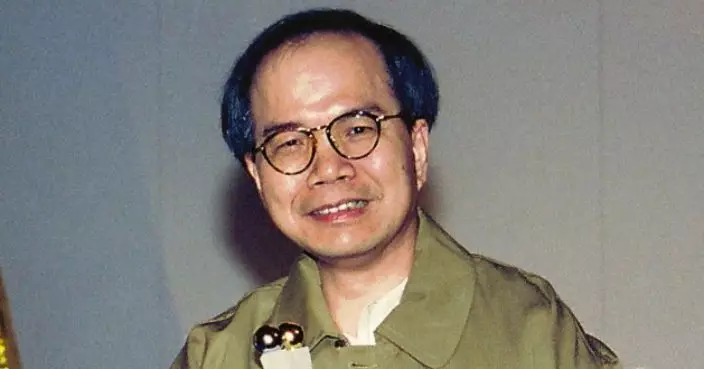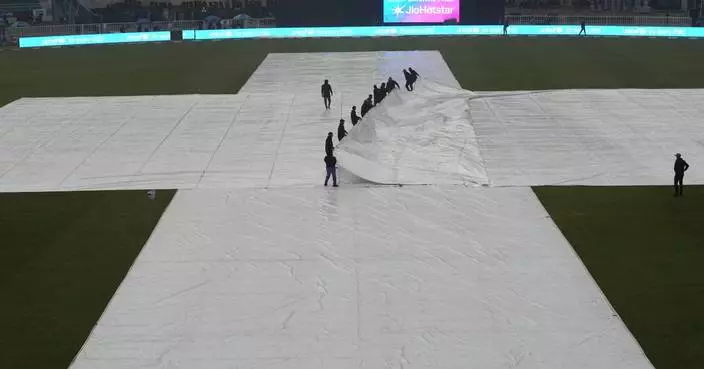SALT LAKE CITY (AP) — The death Sunday of former U.S. Rep. Mia Love, the first Black Republican woman elected to the U.S. House, has brought renewed attention to an aggressive form of brain cancer that killed her at age 49.
The former lawmaker from Utah had undergone treatment for glioblastoma, a malignant brain tumor, and received immunotherapy as part of a clinical trial. Her daughter said earlier this month that she was no longer responding to treatment.
Click to Gallery
FILE - Republican Mia Love celebrates with her father, Jean Maxime Bourdeau, after winning the race for Utah's 4th Congressional District during election night in Salt Lake City, Nov. 4, 2014. (AP Photo/Rick Bowmer, File)
FILE - Utah U.S. Congresswoman Mia Love speaks at the Utah Republican 2018 nominating convention, April 21, 2018, in West Valley City, Utah. (AP Photo/George Frey, File)
FILE - Republican congressional candidate Mia Love speaks during the Utah Republican Party nominating convention in Sandy, Utah, on April 26, 2014. (AP Photo/Rick Bowmer, File)
FILE - Mia Love, the Republican nominee in Utah's 4th congressional district, smiles after speaking during a rally in Lehi, Utah, Oct. 8, 2014. (AP Photo/Rick Bowmer, File)
FILE - Mia Love, Mayor of Saratoga Springs and candidate for Utah's 4th district congressional seat, gives a TV interview at the Republican election night party at the Hilton in Salt Lake City, Nov. 6, 2012. (Spenser Heaps/The Daily Herald via AP, File)
Love died at her home in Saratoga Springs, Utah, according to a statement shared by the family.
Love, born Ludmya Bourdeau, was a daughter of Haitian immigrants and a pioneering Republican congresswoman who represented Utah on Capitol Hill from 2015 to 2019.
She entered politics in 2003 after winning a seat on the city council in Saratoga Springs, 30 miles (48 kilometers) south of Salt Lake City, and later became the city’s mayor. While in that role, Love spoke at the 2012 Republican National Convention and drew rousing cheers with her criticisms of then-President Barack Obama.
That year, she narrowly lost a bid for the House against the Democratic incumbent. She ran again two years later and defeated a first-time candidate by about 7,500 votes, becoming the first Black Republican woman elected to Congress.
Love was briefly considered a rising star in the GOP, but her power within the party petered out as President Donald Trump took hold. Love kept her distance from Trump and called him out in 2018 for vulgar comments he made about immigrants from Haiti, El Salvador and some African nations. Later that year, she lost in the midterm elections as Democrats surged.
Love was diagnosed with glioblastoma in 2022. She said her doctors estimated she had only 10-15 months to live, but she surpassed that.
She described during a speaking engagement in Salt Lake City how she discovered the tumor. Love said she was on vacation with her family and developed a bad headache when the plane landed. When she went to the beach, the sun’s reflection on the water made her headache unbearable. Her husband brought her to the hospital, and a series of X-rays revealed a tumor in her brain.
Love rushed home to Utah and had surgery to remove about 95% of the tumor. Biopsy results revealed it was cancerous and likely to spread to surrounding brain tissue.
She entered a clinical trial at Duke University's Preston Robert Tisch Brain Tumor Center in Durham, North Carolina, that involved using her body’s immune system to attack the tumor. At first, the tumor shrank, but eventually it stopped responding to treatments.
“Glioblastoma is the most aggressive primary brain tumor that's known to mankind, and there is no cure for it,” said Dr. Yasmeen Rauf, a neuro-oncologist at the University of North Carolina at Chapel Hill who treats the disease. “It keeps mutating. No matter what you do, it always comes back.”
A glioblastoma is a fast-growing glioma, a type of tumor that arises from glial cells, which protect nerve cells in the brain and spinal cord.
While there is no known cure, aggressive treatments such as surgery, radiation, chemotherapy and other targeted therapies may slow the growth of the tumor. Even if a surgeon is able to remove all that can be seen, Rauf said there are typically still some tumor cells left in the brain that cannot be seen and will multiply quickly.
About 13,000 Americans are diagnosed with glioblastoma each year, accounting for almost half of all cancerous brain tumors, according to the Cleveland Clinic. More than 10,000 people in the U.S. will succumb to the disease every year, the National Brain Tumor Society reports.
Glioblastoma can occur at any age but is more commonly found in older adults. The average age at diagnosis is 64.
It's the same type of brain cancer that killed former President Joe Biden's son Beau Biden in 2015 and Sen. John McCain in 2018.
Researchers have not found a way to prevent glioblastoma, and the cause of most of these tumors is unknown. Glioblastoma occurs when glial cells in the brain or spinal cord mutate, altering their genetic makeup.
It does not run in families, and you won't pass it on to your children, Rauf explained.
People who have been exposed to significant amounts of radiation have an increased risk of developing glioblastoma.
People diagnosed with glioblastoma typically have about 15-18 months to live, with only a 10% chance of survival after five years, according to the MD Anderson Cancer Center.
With aggressive treatments, Love lived for about three years after receiving her diagnosis.
“My life has been extended by exceptional medical care, science and extraordinary professionals who have become dear friends,” Love wrote in a recent op-ed in the Deseret News. “My extra season of life has also been the result of the faith and prayers of countless friends, known and unknown."
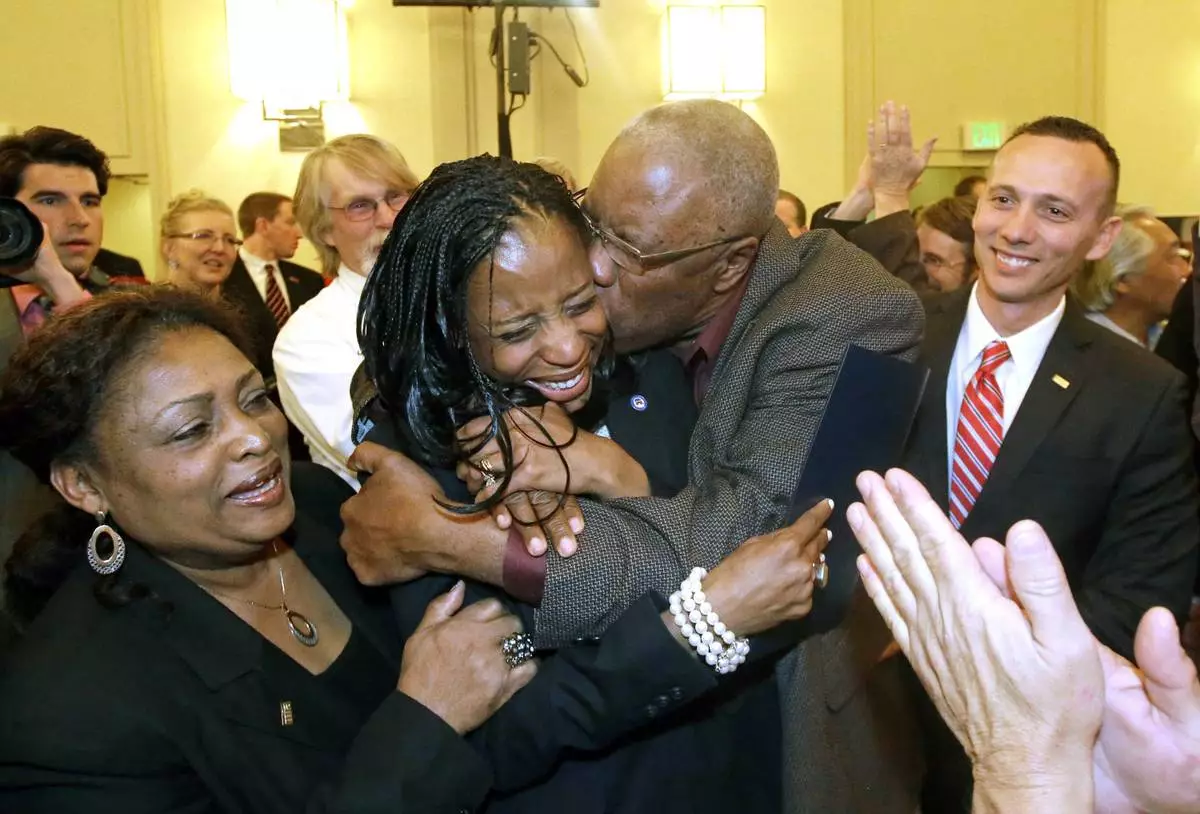
FILE - Republican Mia Love celebrates with her father, Jean Maxime Bourdeau, after winning the race for Utah's 4th Congressional District during election night in Salt Lake City, Nov. 4, 2014. (AP Photo/Rick Bowmer, File)

FILE - Utah U.S. Congresswoman Mia Love speaks at the Utah Republican 2018 nominating convention, April 21, 2018, in West Valley City, Utah. (AP Photo/George Frey, File)

FILE - Republican congressional candidate Mia Love speaks during the Utah Republican Party nominating convention in Sandy, Utah, on April 26, 2014. (AP Photo/Rick Bowmer, File)

FILE - Mia Love, the Republican nominee in Utah's 4th congressional district, smiles after speaking during a rally in Lehi, Utah, Oct. 8, 2014. (AP Photo/Rick Bowmer, File)
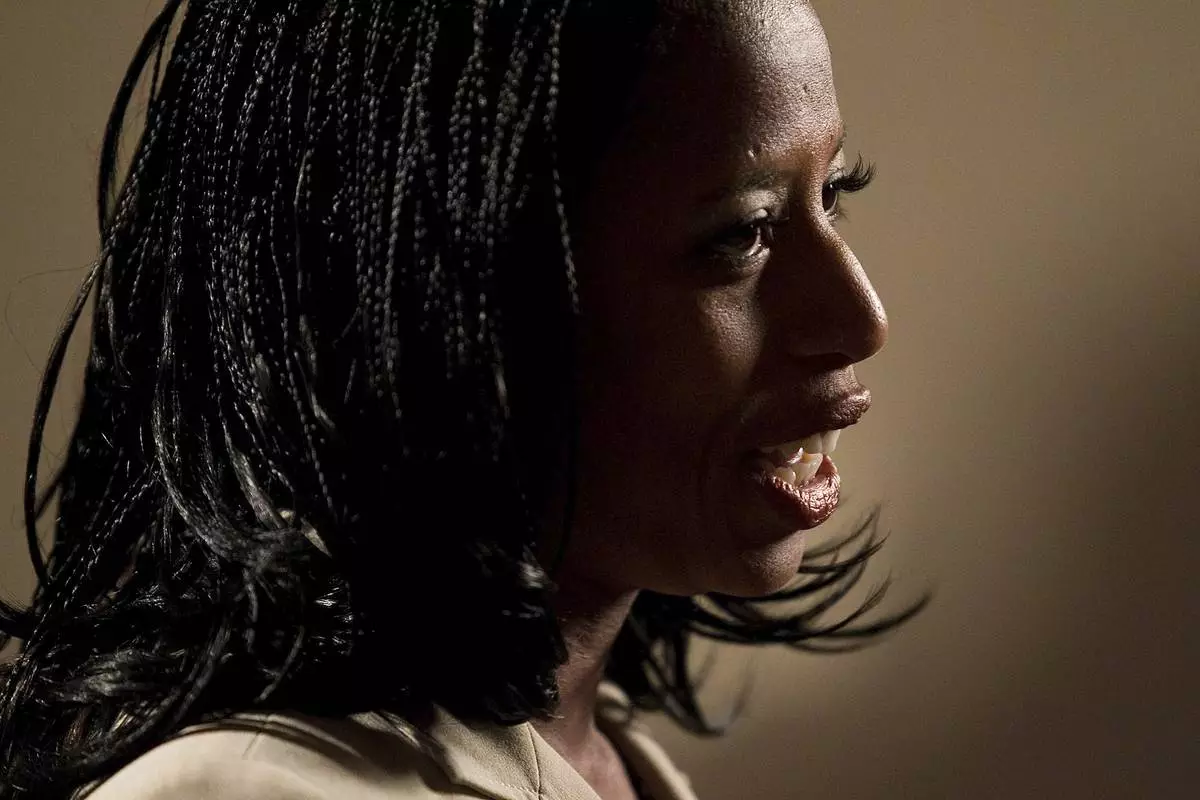
FILE - Mia Love, Mayor of Saratoga Springs and candidate for Utah's 4th district congressional seat, gives a TV interview at the Republican election night party at the Hilton in Salt Lake City, Nov. 6, 2012. (Spenser Heaps/The Daily Herald via AP, File)
The Israeli military on Wednesday ordered the evacuation of parts of Gaza City as it steps up its renewed offensive against Hamas after breaking the ceasefire last week. Israel’s bombardments and ground operations have caused vast destruction and at their height displaced some 90% of Gaza’s population.
Thousands of Palestinians marched in heavily destroyed northern Gaza on Wednesday in the second day of anti-war protests. It’s a rare display of public anger against Hamas, although the protests appeared generally aimed against the war in Gaza and their insufferable living conditions.
Israel has cut off all food, fuel, medicine and other supplies to war-torn Gaza's roughly 2 million people since the beginning of the month — a strategy that rights groups say is a war crime.
Israel has vowed to increase military pressure until Hamas returns the remaining 59 hostages — 24 of whom are believed to be alive. Israel also demands Hamas disarm and send its leaders into exile. Hamas says it won't release the remaining hostages without a lasting ceasefire and full Israeli withdrawal from Gaza.
Here's the latest:
At least nine Palestinians were killed Wednesday in two separate Israeli airstrikes in central Gaza, medics said.
One strike hit a group of Palestinians gathered outside a charity providing hot meals in the Nuseirat refugee camp. At least five people, including a woman and her adult daughter, were killed in the strike, according to the Awda hospital, which received the casualties.
A separate strike on a tent killed a father, mother and their daughter in the town of Zwaeida, according to the Al-Aqsa Martyrs Hospital in the nearby city of Deir al-Balah. The hospital said the explosion tore the man's body in half.
The Israeli military had no immediate comment.
In the town of Beit Lahiya, where a similar protest took place Tuesday, about 3,000 people demonstrated Wednesday, with many chanting “the people want the fall of Hamas.” In the hard-hit Shijaiyah neighborhood of Gaza City, dozens of men chanted “Out, out out! Hamas get out!”
“Our children have been killed. Our houses have been destroyed,” said Abed Radwan, who said he joined the protest in Beit Lahiya “against the war, against Hamas, and the (Palestinian political) factions, against Israel and against the world’s silence.”
“You too should demand the removal of Hamas from Gaza and the immediate release of all Israeli hostages. That is the only way to stop the war,” Defense Minister Israel Katz said Wednesday.
One Palestinian who protested on Tuesday told The Associated Press they regretted participating because of Israeli media coverage, which emphasized the opposition to Hamas.
The protester, who spoke on condition of anonymity for fear of retribution, said they joined the demonstration in the heavily destroyed northern town of Jabaliya because “everyone failed us.”
They said they chanted against Israel, Hamas, the Western-backed Palestinian Authority and Arab mediators. They said there were no Hamas security forces at the protest but scuffles broke out between supporters and opponents of the group.
Senior Hamas official Bassem Naim, in a post on Facebook, wrote that people had the right to protest but that their focus should be on the “criminal aggressor,” Israel.
“The exploitation of these tragic human conditions is rejected and denounced, either to pass on dubious political agendas or to drop responsibility for the criminal aggressor, which is the occupation and its army,” he wrote.
The militant group has violently cracked down on previous protests. This time no outright intervention was apparent, perhaps because Hamas is keeping a lower profile since Israel resumed the war.
The United Nations Population Fund said Israel’s ongoing aid blockade into Gaza is creating a critical shortage of maternal health supplies. They include much needed drugs for pregnancy and to prevent deaths and complications during childbirth.
Since the beginning of the month, Israel has cut off the entry of all food and other goods into Gaza, and last week resumed bombardment as it tries to pressure Hamas to accept its demands to extend the January ceasefire.
UNFPA said its supplies are languishing at the border, including more than 50 ultrasounds to monitor fetal health, nine incubators and 350 midwifery kits to help during deliveries, impacting more than 15,000 women.
The group said pregnant women and newborns in Gaza are facing higher than normal rates of complications, driven by widespread malnutrition, which is being compounded by the aid blockade. Since the blockade around 520 babies — one in five —have required advanced medical care that is increasingly scarce, it said.
Lawyers representing a Gaza hospital director detained in an Israeli raid late last year say an Israeli court has extended his detention for another six months.
Israeli troops detained Dr. Hossam Abu Safiya when they raided Kamal Adwan Hospital in December. He was held without access to a lawyer for 47 days and has not been charged, according to Al Mezan, a human rights group representing him in court.
Al Mezan said the Beersheba District Court issued the order extending his detention on Tuesday. It said prosecutors submitted secret evidence alleging he is a threat to Israeli security, allegations he denies. There was no immediate comment from the Israeli military.
Israel has raided hospitals in Gaza on several occasions during the 17-month war with Hamas, accusing the militant group of using them for military purposes. Hospital staff deny the allegations and accuse Israel of recklessly endangering civilians.
An Israeli co-director of an Oscar-winning film about settler violence said the Academy of Motion Picture Arts and Sciences refused to publicly condemn the beating and detention of the Palestinian co-director by Israeli soldiers and settlers in the occupied West Bank.
Writing on X, Yuval Abraham, co-director of “No Other Land,” wrote that several members of the academy, which awards the Oscars, advocated in vain for the group to make a statement denouncing the attack on Hamdan Ballal. He said he was told that the academy would not denounce the attack because it involved other Palestinians.
“In other words, while Hamdan was clearly targeted for making No Other Land … he was also targeted for being Palestinian — like countless others every day who are disregarded. This, it seems, gave the Academy an excuse to remain silent when a filmmaker they honored, living under Israeli occupation, needed them the most,” wrote Abraham.
He noted that the European Academy had voiced solidarity with Ballal following the attack and said it was not too late for the American Academy to do the same. The military has denied that Ballal was beaten.
Palestinians chanted against Hamas during an anti-war protest in the Gaza Strip, according to videos circulating online. It was a rare show of public anger against the militant group, which has long repressed dissent and still rules the territory 17 months into the war with Israel.
The videos, which appeared to be authentic, showed hundreds of people taking part in an anti-war protest in the heavily destroyed northern town of Beit Lahiya on Tuesday. People held signs saying “Stop the war,” “We refuse to die,” and “The blood of our children is not cheap.”
Some could be heard chanting: “Hamas out!” Other videos appeared to show Hamas supporters dispersing the crowds.
A similar protest occurred in the heavily destroyed area of Jabaliya on Tuesday, according to witnesses.
The Israeli military has ordered the evacuation of parts of Gaza City as it steps up its renewed offensive against Hamas.
The latest orders issued Wednesday apply to Zeitoun, Tel al-Hawa and other neighborhoods where Israeli forces have carried out previous operations during the 17-month war. The military said it will soon respond to rocket fire from the area and ordered residents to move south.
Israel broke its ceasefire with Hamas last week when it launched a surprise wave of strikes that killed hundreds of Palestinians.
It has vowed to increase military pressure until Hamas returns the remaining 59 hostages it holds – 24 of whom are believed to be alive. Israel has also demanded that Hamas disarm and send its leaders into exile.
Hamas has said it will not release the remaining hostages without a lasting ceasefire and full Israeli withdrawal from Gaza.
The war was triggered by Hamas’ Oct. 7, 2023, attack into Israel, in which Palestinian militants killed some 1,200 people, mostly civilians, and abducted 251. Israel’s retaliatory war has killed over 50,000 people, according to Gaza’s Health Ministry. The ministry does not distinguish between civilians and combatants in its count but says women and children make up over half the dead.
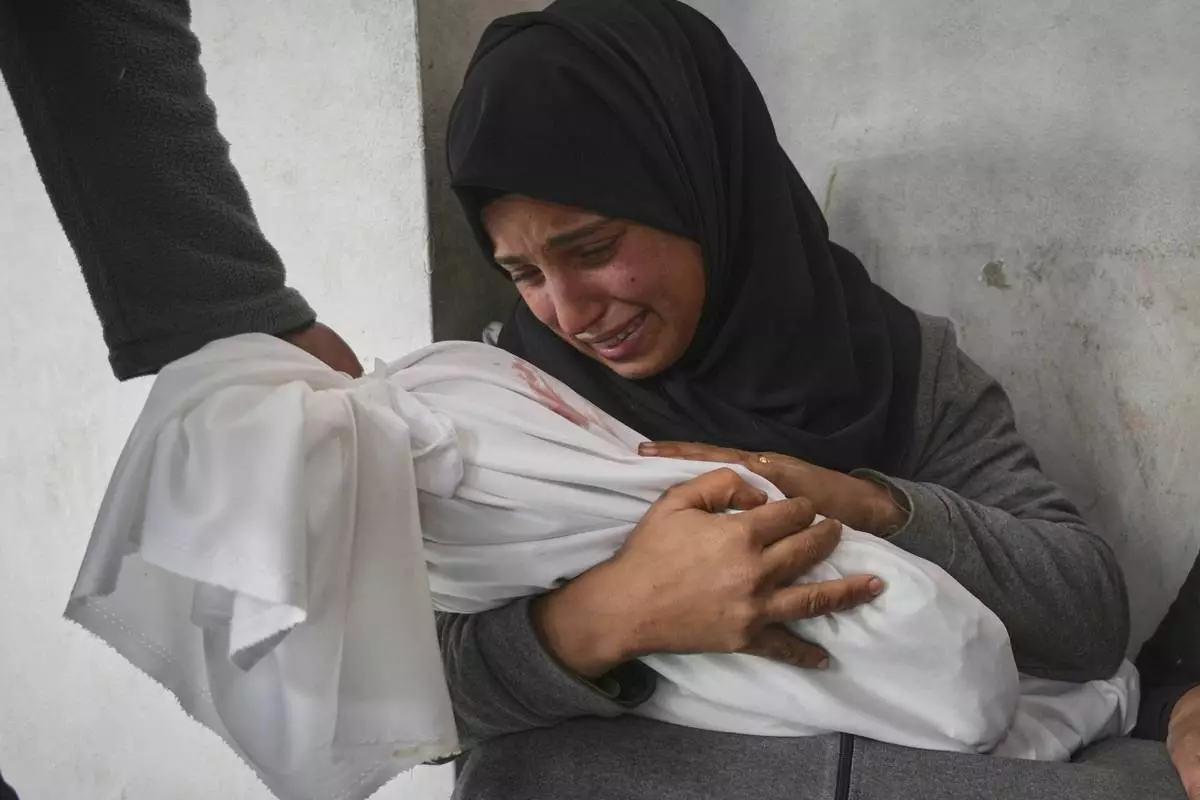
Amani Abu Aker holds the body of her two-year-old niece Salma, killed during an Israeli army strike, before their burial at the Baptist hospital in Gaza City, Monday March 24, 2025. (AP Photo/Jehad Alshrafi)
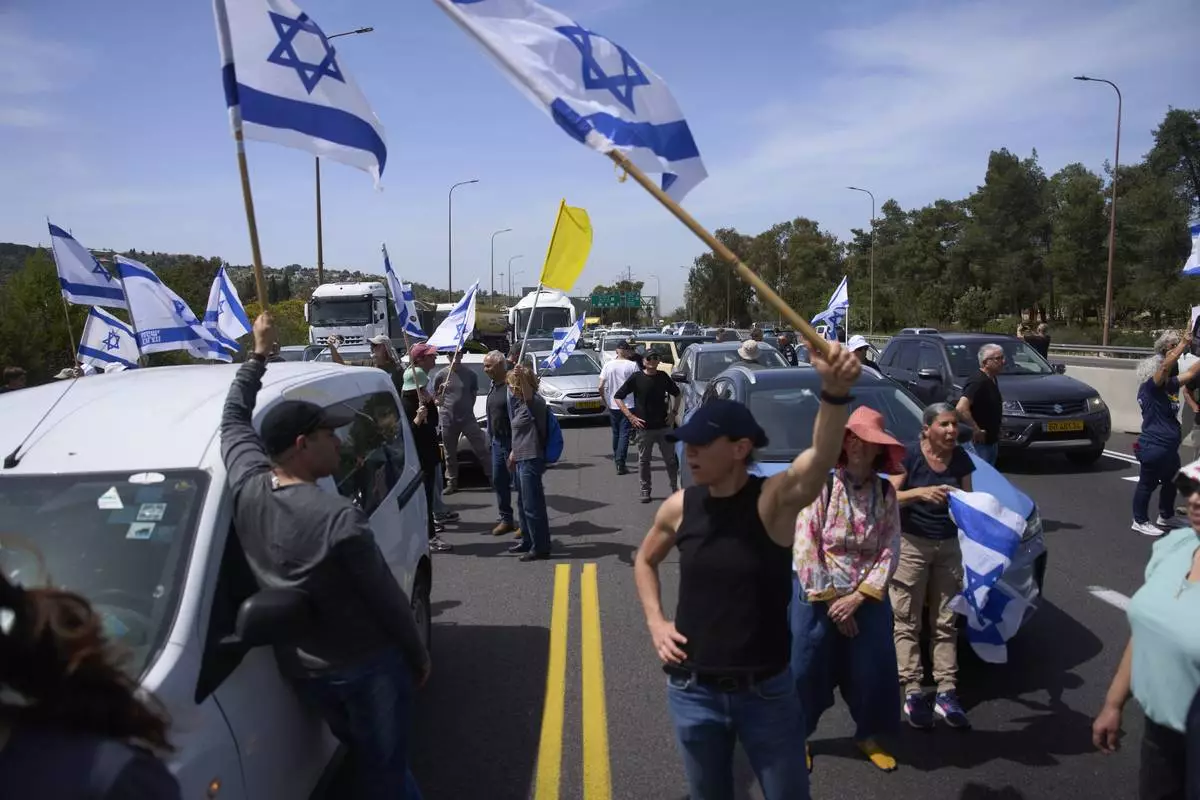
Israelis block a highway between Jerusalem and Tel Aviv in a protest against Prime Minister Benjamin Netanyahu's government, demanding the realese of the hostages held by Hamas in the Gaza Strip, Wednesday, March 26, 2025. (AP Photo/Ohad Zwigenberg)
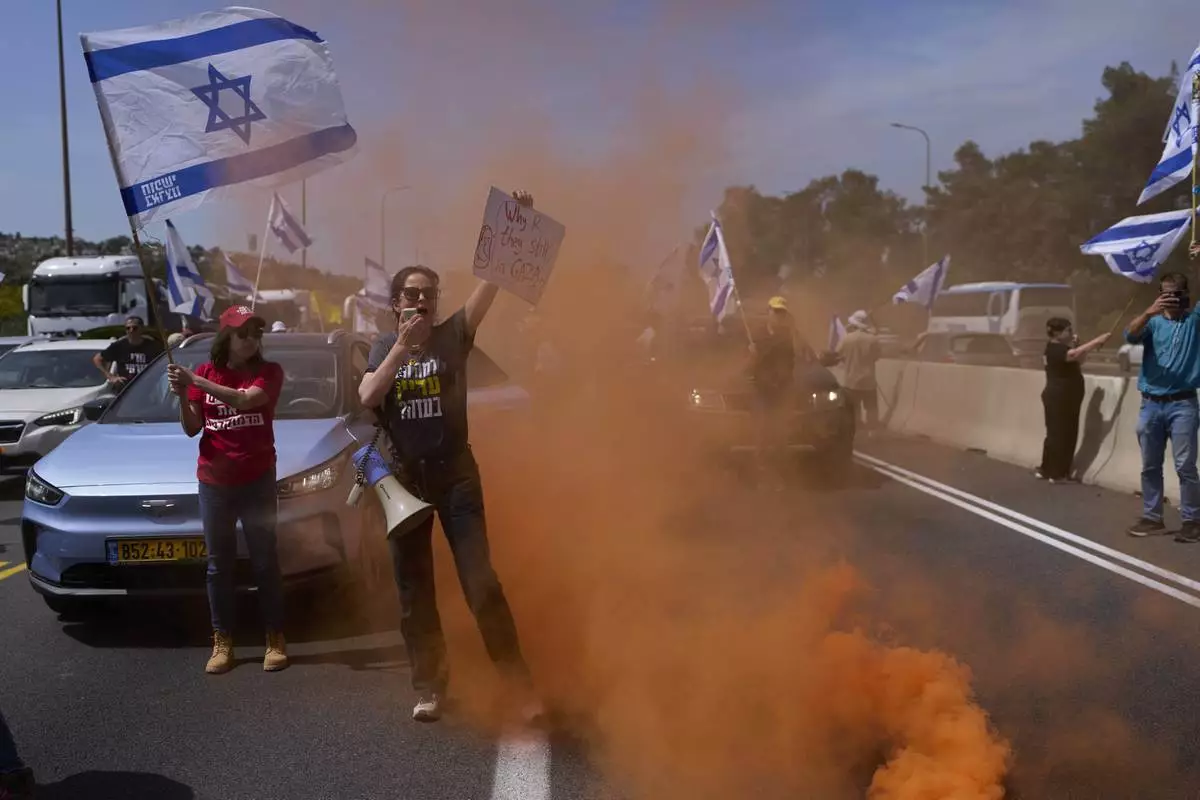
Israelis block a highway between Jerusalem and Tel Aviv in a protest against Prime Minister Benjamin Netanyahu's government, demanding the realese of the hostages held by Hamas in the Gaza Strip, Wednesday, March 26, 2025. (AP Photo/Ohad Zwigenberg)
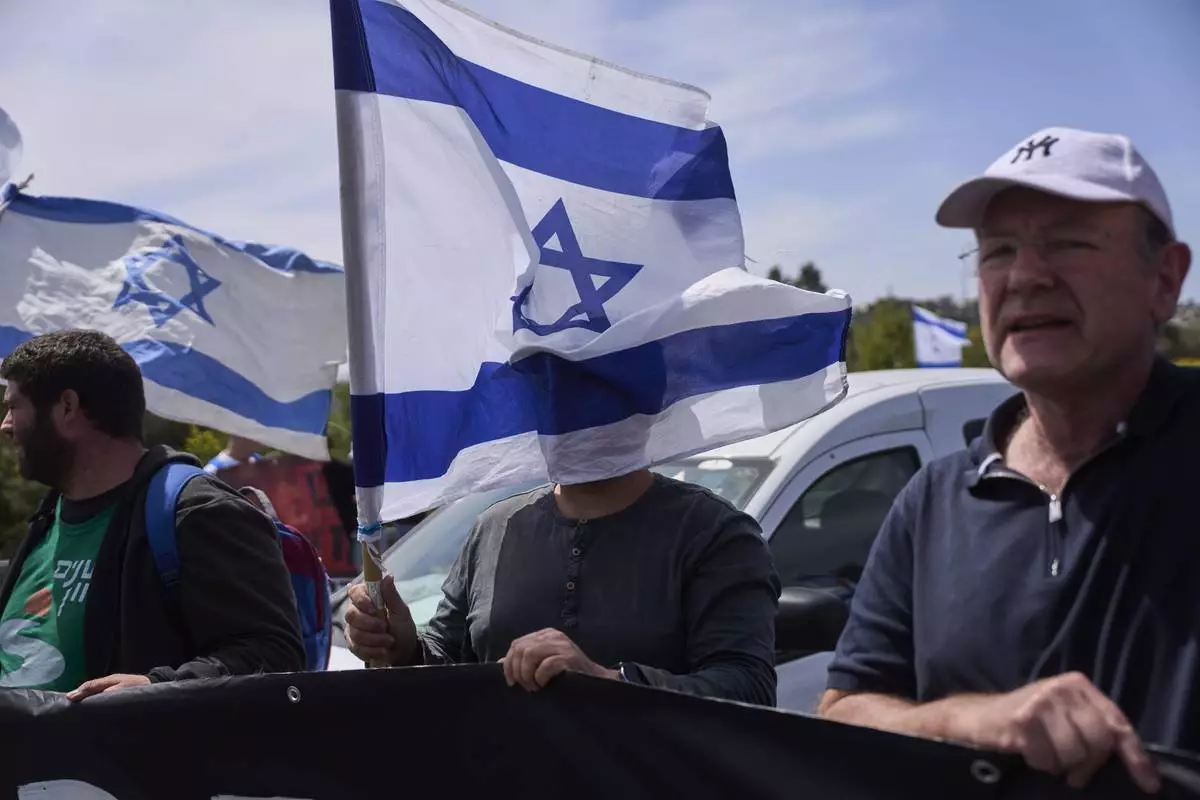
Israelis block a highway between Jerusalem and Tel Aviv in a protest against Prime Minister Benjamin Netanyahu's government, demanding the realese of the hostages held by Hamas in the Gaza Strip, Wednesday, March 26, 2025. (AP Photo/Ohad Zwigenberg)
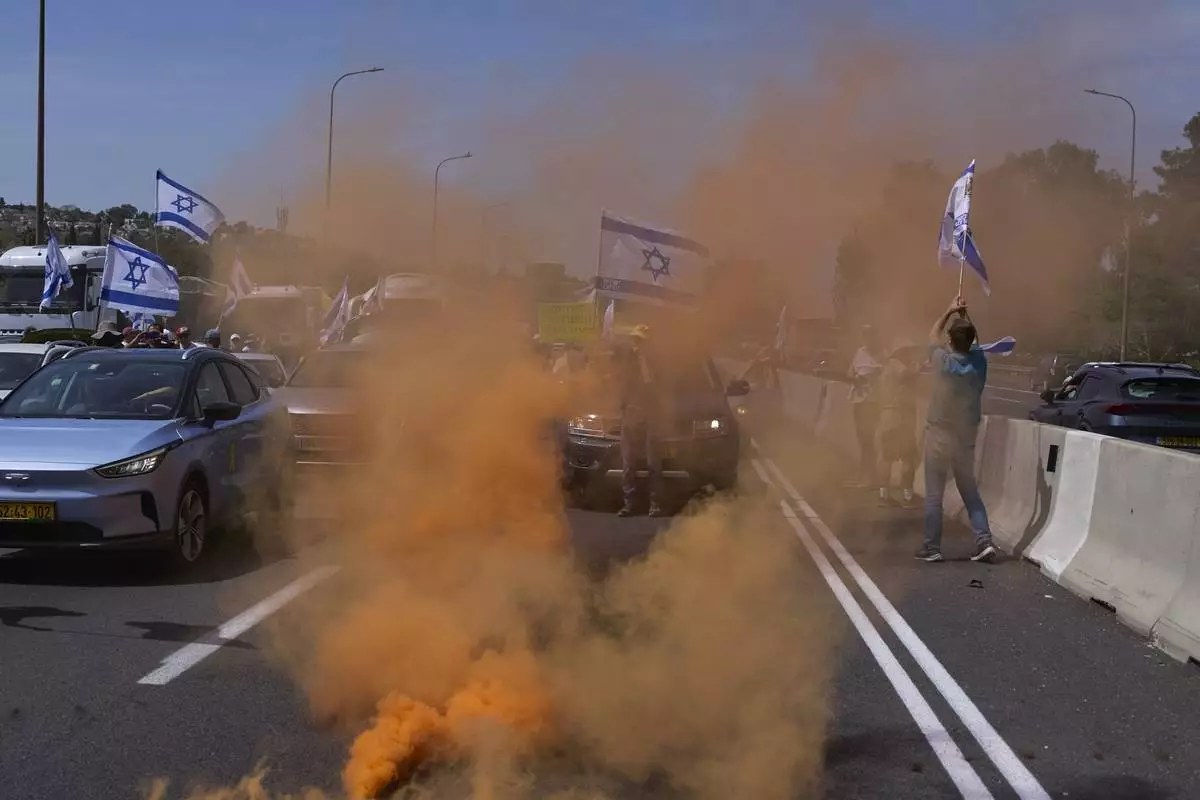
Israelis block a highway between Jerusalem and Tel Aviv in a protest against Prime Minister Benjamin Netanyahu's government, demanding the realese of the hostages held by Hamas in the Gaza Strip, Wednesday, March 26, 2025. (AP Photo/Ohad Zwigenberg)
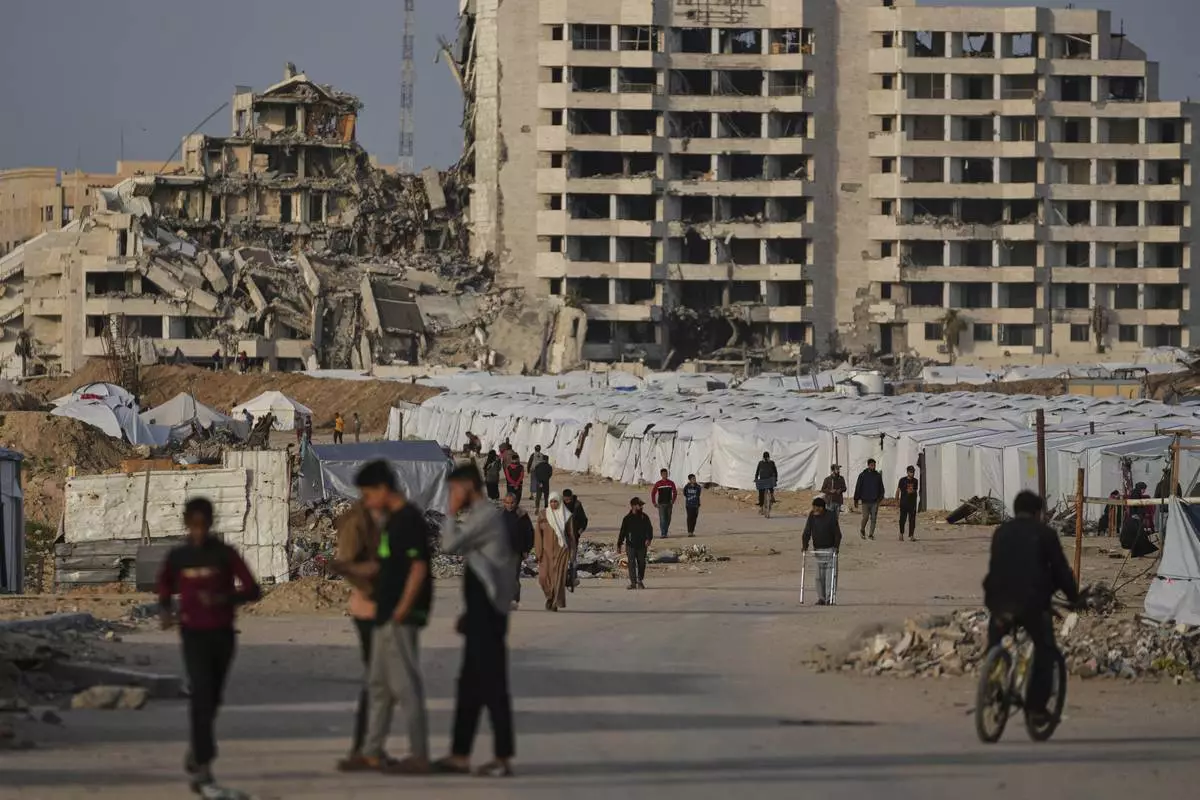
Palestinians walk next to a tent camp for displaced by the Israeli air and ground offensive on the Gaza Strip in west of Gaza Strip, Tuesday, March 25, 2025. (AP Photo/Jehad Alshrafi)
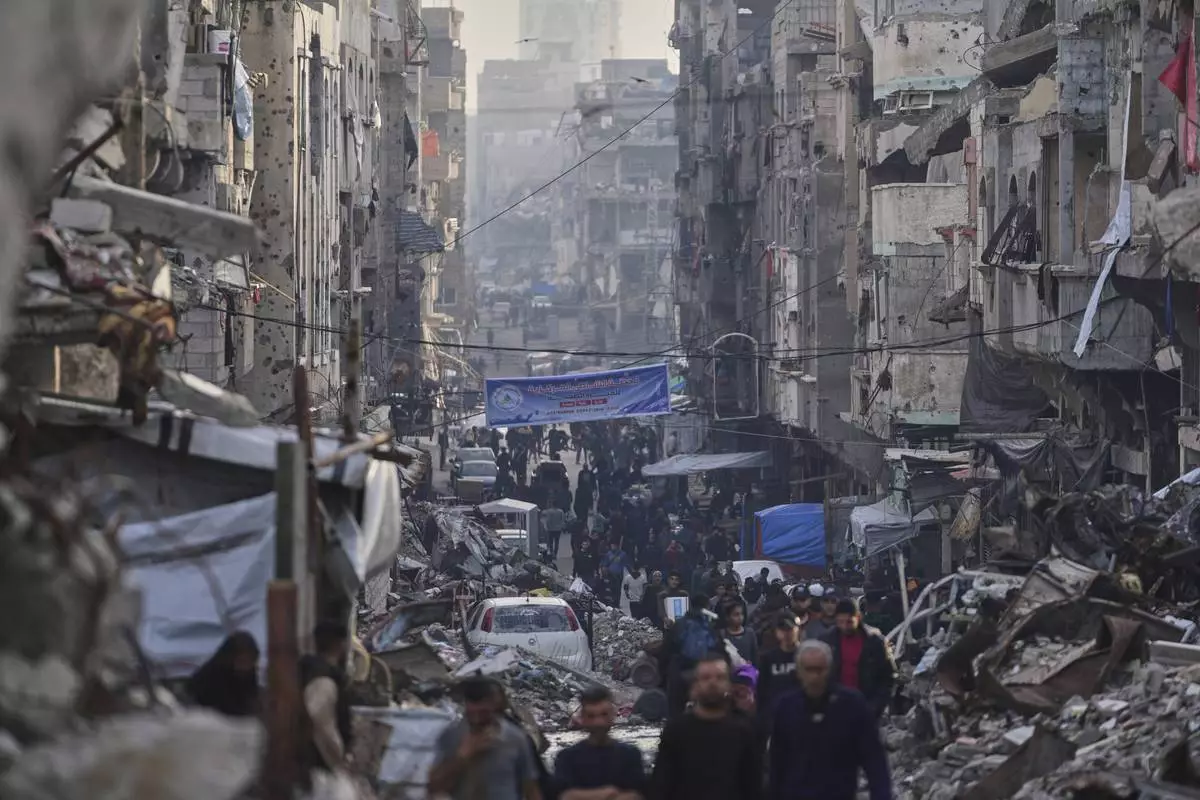
Palestinians walk amid the destruction caused by the Israeli air and ground offensive at Al-Shati camp, Gaza City, Tuesday, March 25, 2025. (AP Photo/Jehad Alshrafi)







